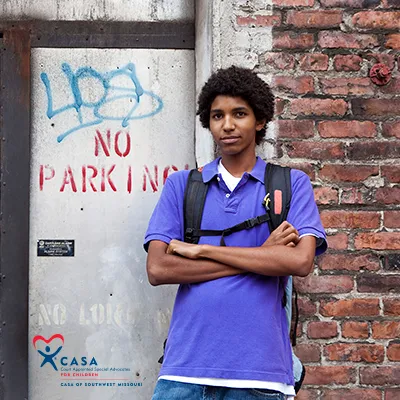Fostering Futures
At the age of 18, youth in foster care are free to decide to leave the system and go out on their own. Without any support. And nowhere to go. Although they are legally adults, many are not prepared to transition into adulthood.
The outcomes for youth aging out of foster care without a permanent home are often dismal. Consider these statistics:

- Only 58% had a high school degree at age 19, compared to 87% of a national comparison group of non-foster youth
- Of youth who aged out of foster care and are over the age of 25, fewer than 3% earned their college degrees, compared with 28 % of the general population
- About one in five alumni were homeless for one or more nights within a year after leaving foster care
- One in four of these youth will be incarcerated within the first two years after they leave the system
- The rate of post-traumatic stress disorder (PTSD) among alumni was nearly five times that of the general population and, at 21.5%, exceeded the rates for American war veterans
Based on the extensive experience of local CASA programs and volunteers working with the highest risk cases of maltreatment, and applying recent research findings, we have the opportunity to positively impact these outcomes for our youth. The program is designed to improve the outcomes of older youth preparing to age out the foster care system with no permanent home.
The Fostering Futures program engages CASA volunteers as advocates for and advisors to foster youth ages 14-21, with the goal of helping them identify supportive adult connections and develop specific plans for making a successful transition from foster care to becoming independent, successful adults. In their work with older youth, the advocate adds to the traditional CASA volunteer role the important activities of partnering with the youth to empower them in decision making and planning for their future. The volunteer advocate’s role in working with an older youth includes creating a sense of permanence in which the youth is connected to at least one caring, committed adult who will be a long-term support person for the youth. When working with an older youth, the volunteer partners with the youth to carry out activities. Because services are so crucial to this vulnerable population, the volunteer must become a fierce advocate for the youth to obtain needed services critical to the ultimate outcome.
National CASA designed this curriculum to include a self-paced, online component that volunteers complete in order to receive an orientation to the concepts in the Fostering Futures curriculum prior to attending eight hours of in-person training. Throughout the course of this training curriculum, volunteers explore in more depth the following topic areas:
-
Unique CASA roles and responsibilities when working with older youth
-
Federal laws that impact advocacy for older youth
-
Needs of adolescent youth
-
Differences (and similarities) between advocates and mentors
-
Concept of "possible selves”
-
Shared decision making/planning
-
Addressing challenges faced by older youth in care
The "possible selves” model is a key component of the Fostering Futures curriculum. Based on research out of the University of Michigan, "possible selves” helps young people achieve their full potential by promoting a positive self-identity, setting goals for the future and developing formal plans to achieve those goals.
The Fostering Futures curriculum provides volunteers with two specific tools that can be used while working with and advocating for older youth:
-
An "Older Youth Needs Assessment” (focusing on the needs of older youth in the following areas: education, employment, housing, life skills, mental/physical health needs and relationships)
-
A goal-setting packet based on the concept of "possible selves"
Become an Advocate/Mentor for a teen aging out of foster care.
What else are you curious about?
Ask CASA
Ask a question below or check out our FAQ page.
